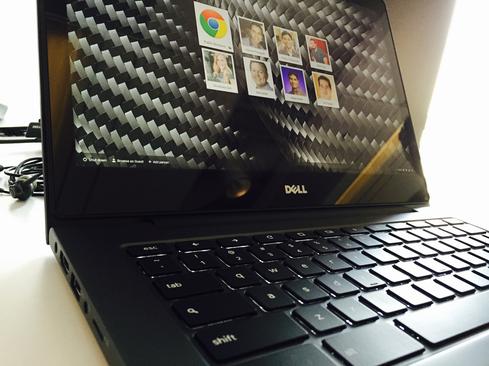Google's Chrome OS May Start Offering Android Apps
In an effort to better integrate Android and Chrome OS -- its desktop-based operating system -- Google may be bringing the Google Play store to Chromebooks.


Google's Next HQ: Modern, With Retro Flairs
Google's Next HQ: Modern, With Retro Flairs (Click image for larger view and slideshow.)
Google is looking to expand the universe of apps on its Chrome operating system in an effort to better integrate the applications running on its desktop and mobile operating systems. At the same time, the company is looking to lock-in customers to its overall ecosystem.
Google has been hard at work with a project called the App Runtime for Chrome (ARC), which allows applications built for its mobile operating system Android to work with its desktop Chrome OS.
The search giant's effort at deeper integration between platforms was picked up by a Reddit user who spotted a new option in Chrome OS titled "Enable Android Apps to run on your Chromebook."
This means that potentially more than a million Android apps would become available to anyone operating a Chrome-based device.
An October report in The Wall Street Journal gives some clues as to the designs of Alphabet -- Google's recently formed umbrella corporation -- which, according to the paper's sources, plans to fold its Chrome OS for personal computers into its Android mobile OS.
The article also noted Google's timeline for the converged system would likely end in 2017, which indicates that this budding integration is part of a longer, slower amplification of the Google Play store.

Are you prepared for a new world of enterprise mobility? Attend the Wireless & Mobility Track at Interop Las Vegas, May 2-6. Register now!
It's a strategy that is also being pursued by Microsoft -- an effort to maintain current marketshare levels by making the mobile and desktop operating systems fully integrated, which means consumers are more likely to keep one OS across multiple devices.
By making the two operating systems equal across all devices, Google could also provide a boost to the flagging PC market. Worldwide PC shipments totaled 71.9 million units in the fourth quarter of 2015, a year-on-year decline of more than 10%, according to a recent report from IDC.
"Growth of Chrome, Bing, all-in-ones, ultraslim, convertibles, and touch systems similarly make PCs more compelling and competitive," Loren Loverde, IDC vice president of Worldwide PC Tracker, wrote in a statement. "Nevertheless, some of the gains are relatively small, and weakening drivers like Bing promotions and end of XP support transitions, cast a shadow of doubt on the strength of the market going into 2015."
Google has so far kept quiet on its plans to move Android apps to a desktop-oriented marketplace, but with Google's annual I/O conference coming up next month, more confirmed details could arrive soon.
The company's mobile rival Apple seems likely to stick to separate mobile iOS and desktop-based operating systems, with CEO Tim Cook expressing his belief that the future doesn't hold a place for a "converged" device that combines the Mac and the iPad.
"We feel strongly that customers are not really looking for a converged Mac and iPad. Because what that would wind up doing, or what we're worried would happen, is that neither experience would be as good as the customer wants," Cook said in an interview with The Independent. "So we want to make the best tablet in the world and the best Mac in the world. And putting those two together would not achieve either. You'd begin to compromise in different ways."

About the Author(s)
You May Also Like
How to Amplify DevOps with DevSecOps
May 22, 2024Generative AI: Use Cases and Risks in 2024
May 29, 2024Smart Service Management
June 4, 2024







